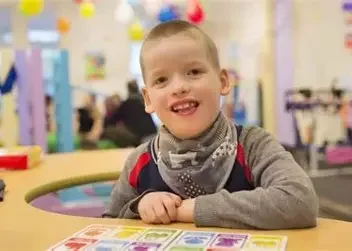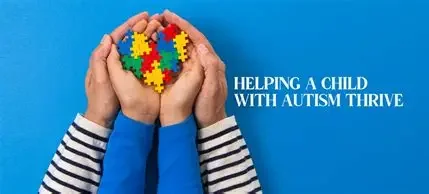Autism Assessments in Newcastle and Sydney by Mind & Health Psychology – A Guide for Families from a Psychologist
Accessing an autism assessment can sometimes feel overwhelming. At Mind & Health Psychology, we offer structured, evidence-based autism assessments for children, adolescents, and adults, conducted in our Newcastle Office and Sydney (Chatswood) Office Our assessments are consistent with current clinical guidelines and suitable for NDIS documentation where relevant. This article outlines why autism diagnosis is often delayed, our process, the tools we use, and our commitment to neuro-affirming practice.
*Why is an Autism Diagnosis often Delayed?
1. Early Misdiagnoses & Diagnostic “Tunnel Vision”
Many young children are diagnosed first with ADHD or sensory processing issues—conditions that often overlap with autism—with 30–40% of autistic children also having ADHD .
These initial diagnoses can delay recognition of autism when symptoms become more apparent in social contexts, especially as the child starts school.
2. Hesitation by Clinicians
Clinicians and parents tend to opt for the diagnosis with the best prognosis or the most immediate, treatable condition, preferring to wait and “see how development goes”.
Autism requires a lengthy, specialist assessment (e.g., the ADOS-2 plus parental interviews such as the ADI-R), which isn’t feasible during brief check-ups with general pediatricians.
3. Tunnel Vision & Overlooked Symptoms
Once a diagnosis (e.g. ADHD or sensory issues) is made, clinicians may inadvertently ignore additional signs pointing toward autism—what Dr Amir Miodovnik calls Tunnel Vision’
A study led by Dr Miodovnik found that children initially diagnosed with ADHD experienced autism diagnoses that were delayed by an average of three years, and were nearly 30 times more likely to receive an autism diagnosis after age 6 compared to those diagnosed earlier.
4. Specialist Insight
Dr Lord notes that children may spend years seeing speech or occupational therapists for sensory issues when what they truly need is social skills-focused support aligned with autism treatment.
5. What Parents Can Do
Obtain a full evaluation by professionals experienced in autism diagnosis.
If you suspect your child may be on the spectrum and still haven’t received clarity, seek a second opinion.
Dr Nash emphasizes: “Empower yourselves as parents. Advocate for your child”.
Author & Expert Contribution
Author: Caroline Miller (Editorial Director, on the Child Mind Insitute Website, June 2025)
Clinical Experts Cited:
Dr Wendy Nash, MD (Child & Adolescent Psychiatrist) Child Mind Institute.
Dr Catherine Lord, PhD (Veteran Autism Researcher and Clinician at UCLA) Child Mind Institute.
Dr Amir Miodovnik (Pediatrician, Centre for Development & Learning) Kennedy Krieger Institute.
What Is Included in an Autism Assessment at Mind & Health Psychology?
We use a comprehensive battery of validated tools. Depending on age and presentation, the assessment may include:
ADOS-2 – Autism Diagnostic Observation Schedule - Second Edition (a semi-structured behavioural observation)
ADI-R – Autism Diagnostic Interview–Revised (with parents or caregivers)
MIGDAS-2 – Monteiro Interview Guidelines for Diagnosing Autism Spectrum -Second Edition.
Cognitive assessment – using the Wechsler scales, Stanford-Binet, Adaptive Measures, and/or other appropriate developmental tools
Clinical behavioural observation and developmental review
Comprehensive and Collaborative: Involving a team-based approach ensures a comprehensive understanding of the individual’s needs across different environments.
Understanding the Tools We Use
ADOS-2 (Autism Diagnostic Observation Schedule – Second Edition)
This semi-structured observational tool assesses social communication and interaction through interactive tasks. It is suitable for individuals aged 12 months through adulthood and is adapted based on language ability.
ADI-R (Autism Diagnostic Interview – Revised)
The ADI-R is a structured clinical interview conducted with caregivers, exploring early development, communication, play, social interaction, and restricted behaviours.
MIGDAS-2
The MIGDAS-2 provides a sensory-based and narrative-driven framework that complements the ADOS-2 and ADI-R. It emphasises authentic communication, sensory interests, and individual differences.
How These Tools Work Together
Using both the ADOS-2 and ADI-R allows for a comprehensive understanding of both present behaviours and developmental history. The MIGDAS-2 adds qualitative insights and supports a more person-centred understanding of autism characteristics. This triangulated approach helps inform diagnostic formulation.
Cognitive and Developmental Assessments
Cognitive testing supports diagnosis by clarifying verbal/non-verbal strengths, reasoning skills, learning profiles, and adaptive functioning. Depending on age and developmental level, we use:
Wechsler Intelligence Scales (for school-aged children and adults)
Stanford-Binet Early Version and Rossetti Infant-Toddler Language Scale (for younger children)
These assessments also allow for observational insight into problem-solving, communication, and task engagement.
A GP appointment is also required as part of the Assessment Process.
About the Lead Psychology Practitioner
Autism assessments at Mind & Health Psychology are conducted by a team.
Stephen O’Malley has completed Doctor of Psychology (Clinical Neuropsychology) coursework to Master’s level, with training in autism, other neurodevelopmental childhood disorders, and neuropsychological assessment and is a Professional Member of the National Academy of Neuropsychology. He has over 20 years of professional experience and is a Board Approved Supervisor. Stephen is formally trained and certified in the administration of gold-standard autism assessment measures, including the ADOS-2, ADI-R, and MIGDAS-2, as well as a range of cognitive and language measures in his neuropsychology training. Additionally, he is a participant in GAIN (Global Autism Interactive Network) Calibration Series to strengthened ADOS-2 module administration.
What Happens After the Assessment?
Following the assessment:
A feedback session is conducted to discuss the findings and provide clarification
Following the evaluation, we offer a follow-up session to review the results, answer questions, and discuss possible next steps. A detailed written report is prepared, outlining the individual’s identified strengths and areas of difference. Our reports are designed to be comprehensive and may assist in applications for supports such as NDIS funding. Whether a report is accepted for funding decisions is determined by the relevant agency and depends on individual circumstances.
Final Considerations
Autism is a form of neurodiversity that presents uniquely across individuals. Our assessments aim to offer a structured and affirming understanding, consistent with best-practice guidelines and the ethical standards of the Psychology Board of Australia.
Our autism assessment approach is child-centred and adult-appropriate, creating a comfortable space for authentic engagement. It focuses on individual strengths to support a holistic and empowering understanding. A collaborative, team-based process ensures comprehensive insight across home, school, and social settings.
Contact
For more information or to enquire about assessment availability, contact: mindandhealthpsychology@gmail.com
All assessments are conducted within the professional scope and ethical guidelines of a Registered Psychologist. Diagnostic decisions are based on comprehensive clinical evaluation. No diagnostic outcome is implied or guaranteed.
Posted on July 27, 2025
ADHD Assessments – Structured, Validated, Clinically Guided
ADHD Assessments for Adults – via Telehealth
Difficulties with focus, memory, or organisation can significantly affect daily life, work, and wellbeing. If you’ve been wondering whether ADHD may be a contributing factor, a structured psychological assessment can help provide clarity.
At Mind & Health Psychology, we offer adult ADHD assessments online throughout Australia. Our approach is consistent with the Australian Evidence-Based Clinical Practice Guideline for ADHD, and all assessments are conducted by a Registered Psychologist with postgraduate training in clinical neuropsychology.
What Does the ADHD Assessment Involve?
Our assessment process combines validated psychometric tools and a structured clinical interview. It includes:
Cognitive Tasks
Our assessment battery includes an objective continuous performance task (e.g., SART or Go/No-Go), which provides real-time data on attentional control, impulsivity, and consistency of response. While not required by Australian guidelines, these measures are often valued by prescribing psychiatrists as part of the broader evidence base when considering medication initiation.
Standardized Questionnaires
You’ll complete well-validated screening tools such as the CAARS and WURS. These assist in identifying symptom patterns and functional impacts across different domains.
Structured Clinical Interview
A one-on-one video session with Stephen O’Malley, Registered Psychologist, designed to explore your developmental, academic, and functional history in a safe and supportive way.
Diagnostic Summary Letter
At the conclusion of the assessment, you’ll receive a professionally written summary letter outlining the assessment process and diagnostic outcome. This letter is suitable for sharing with health professionals such as your GP or psychiatrist.
Who Can Access This Service?
This service is intended for:
Adults aged 18 and over
Individuals who suspect they may have ADHD
People experiencing longstanding issues with focus, memory, or organisation
Individuals seeking professional insight into their cognitive functioning
Assessments are available across metropolitan and regional areas, including Sydney, Melbourne, Brisbane, Adelaide, Perth, Hobart, Darwin, and rural or remote communities.
What to Expect
Generally, entirely online assessment process (via secure telehealth)
Completion of cognitive tasks and questionnaires in your own time
One structured clinical video interview
Clear, respectful communication throughout the process
$795 — includes all components listed above (additional fee for a detailed extended report/ and/or in person consults)
Note: In most cases, the standard diagnostic letter is sufficient. If a detailed extended report is required (e.g., for educational institutions, NDIS, or formal legal documentation), this can be arranged for an additional fee depending on the level of detail and purpose.
Ready to Begin?
For more information or to book an appointment, contact:
mindandhealthpsychology@gmail.com
All services are delivered in accordance with the Psychology Board of Australia’s Code of Ethics. No diagnostic outcome is guaranteed. Diagnostic decisions are based on a comprehensive clinical formulation and assessment process, and all conclusions are made within the scope of psychological practice.
Please note: If you're considering medication for a diagnosed ADHD that psychiatrists and pediatricians typically conduct their own assessment as part of their medical standards before prescribing, even with a psychologist’s diagnosis.
Thriving Kids Program and Autism Assessments in Newcastle & Sydney
Introduction
If you are a parent seeking an autism assessment in Newcastle or Sydney, you may have heard about the new Thriving Kids Program, launching in July 2026. This major government reform is designed to change the way children with developmental differences, including autism, receive support.
Many families are asking: How will this affect my child’s NDIS application? and Should I still pursue a formal autism assessment now? This article explains what the Thriving Kids Program is, what it means for families, and why a high-quality autism assessment remains essential in both Newcastle and Sydney.
Why Was the Thriving Kids Program Created?
In 2024, children with autism represented 70% of new NDIS participants, putting pressure on scheme sustainability.
The government announced a $2 billion investment in early supports to reduce demand on the NDIS.
Thriving Kids will provide services for children with mild to moderate developmental concerns through schools, GPs, and community providers, while the NDIS will focus on those with significant and permanent disabilities.
What Will Change for Families Seeking Assessments?
Even with Thriving Kids on the horizon, an autism assessment remains crucial. Here’s why:
Diagnosis still matters: Whether a child enters NDIS or Thriving Kids, evidence of autism through a structured, gold-standard assessment is required.
Reports are decision-making tools: The NDIS and future Thriving Kids coordinators rely on psychologist reports to document both diagnosis and functional impact.
Planning for transitions: A thorough autism assessment now ensures families are not disadvantaged if eligibility rules tighten in 2027.
Autism Assessments in Newcastle and Sydney
At Mind & Health Psychology, we provide autism assessments for children, adolescents, and adults across Newcastle and Sydney. Each assessment is conducted by Stephen O’Malley, a registered psychologist and board-approved supervisor with advanced training in neuropsychological assessment and over 20 years of experience.
We use gold-standard tools, including the:
ADOS-2 (Autism Diagnostic Observation Schedule)
ADI-R (Autism Diagnostic Interview)
MIGDAS-2 (Monteiro Interview Guidelines for Diagnosing the Autism Spectrum)
WISC-V / WAIS-IV (cognitive assessments) or Standford Binet (early) and Rosetti language measure for younger children.
Reports prepared by our clinicians have been accepted by the NDIS as part of funding applications. Acceptance of funding applications is determined by the NDIS on a case-by-case basis.”
What Does This Mean for Newcastle & Sydney Families?
Families in Newcastle and Sydney (Chatswood and North Shore) can access local autism assessments to prepare for upcoming changes.
A timely assessment helps ensure your child’s support needs are clearly documented before the Thriving Kids Program begins.
Even if your child transitions to Thriving Kids, a comprehensive psychological report provides schools, therapists, and community providers with a clear plan for support.
Key Takeaway for Parents
If you are considering an autism assessment in Newcastle or Sydney, now is the right time. The Thriving Kids Program will change how services are delivered, but a formal diagnosis and detailed report remain the foundation for accessing both NDIS and early intervention supports.






